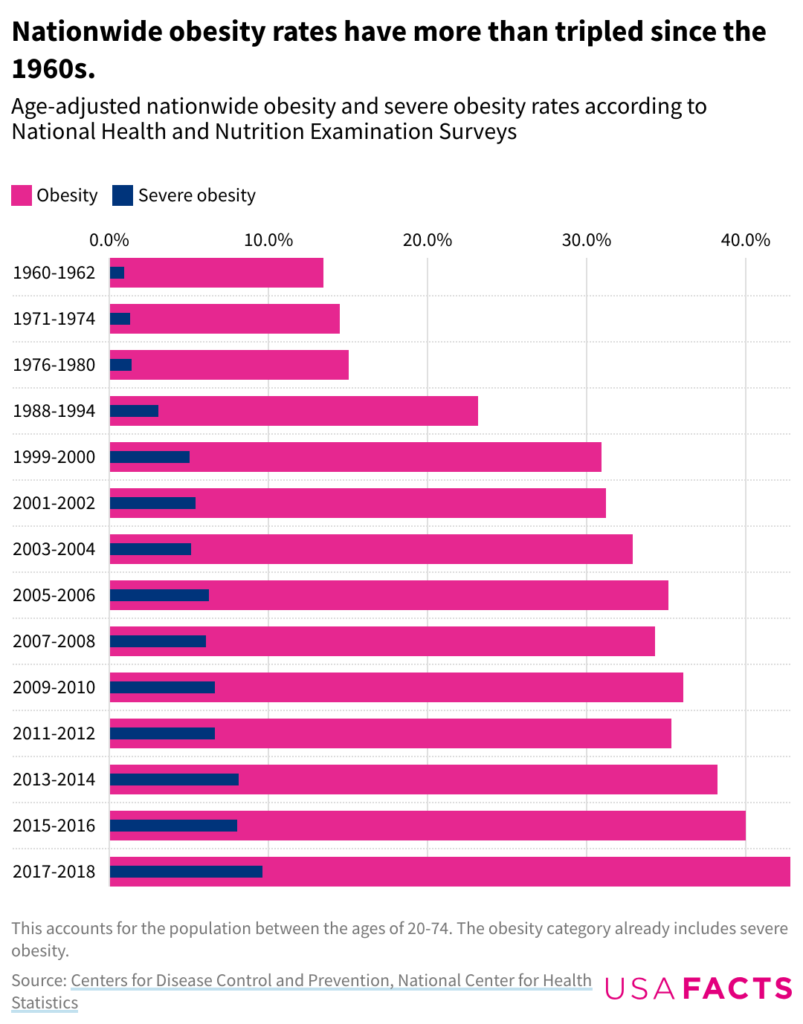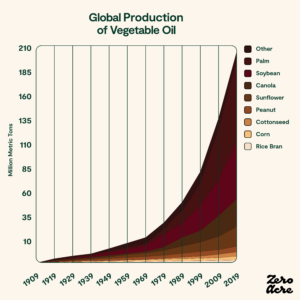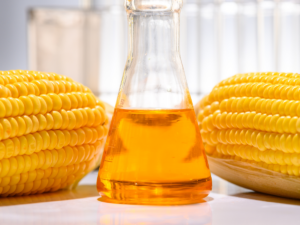By Claire Bacon, ACN, CNC
Two physiologists you may not have heard of before: John Yudkin, PhD and Ancel Keys, PhD. In the nutrition world, one is much more well known than the other. Maybe you can guess who? Yudkin wrote Pure, White, and Deadly in 1972, targeting dietary sugar. This book warned that the consumption of sugar is dangerous to health. Specifically, he wrote that sugar consumption was a factor in the development of conditions such as dental caries, obesity, diabetes, and heart attack.
Keys initiated The Seven Countries Study in 1958, and published the results in 1980, blaming saturated fat as the key cause of heart disease. Keys took the stance that a diet low in animal fat protected against heart disease, and conversely, a diet high in animal fats led to heart disease. The Seven Countries Study correlated serum cholesterol to coronary heart disease and mortality.
Neither scientist had a perfect study. Both referred to correlation results (not causation) and had other limitations. However, it was The Seven Countries Study that got the most attention, and directly influenced nutrition policymaking for the United States. Meanwhile, Pure, White, and Deadly was set aside from the public eye. I wonder why that was? And who could have known what a disaster this would become for our public health?

Politics Over Science
There were three significant discoveries during the 1970s that clinched the winning position for the anti-fat argument:
- People with familial hypercholesterolemia tend to have high LDL and heart disease,
- Dietary fat raises LDL levels, and
- LDL levels correlate with heart disease.
Because of these discoveries, the scientific and political communities were primed to believe that dietary fat (specifically saturated fat) caused heart disease. And conversely, that avoiding saturated fats would prevent heart disease. In addition, it probably helped that the sugar industry bribed researchers to publish data favorable to carbohydrates and detrimental to fat towards our health. As a result, in 1977 the US Senate Select Committee released a report, Dietary Goals for the United States. The Dietary Goals suggested:
- To avoid being overweight, consume only as much energy (calories) as is expended;
- Increase the consumption of complex carbohydrates and “naturally occurring” sugars
- Reduce overall fat consumption from approximately 40% to 30% of energy intake.
- Reduce saturated fat consumption to account for about 10% of total energy intake
- Reduce cholesterol consumption to about 300 milligrams a day.
More whole grains! More carbs!

The Dietary Goals were incorporated into the 1980 Nutrition and Your Health: Dietary Guidelines for Americans, issued by the USDA and HHS. As a result, Americans started counting calories and fat grams. We started cutting out traditional foods like eggs and bacon, in favor of Snackwell’s low fat cookies. And we changed our cooking oils from butter and tallow to things like margarine and Crisco. Bottom line: Americans listened. And our bottoms grew proportionally.
The current (2020) guidelines still maintain a bias against saturated fat and fat in general, even though emerging studies and statistics show the error in our ways. After all this time, we can clearly see the impact of the pro-sugar anti-fat guidelines. Heart disease is the #1 killer in this country, with Cancer close behind. And 88% of us are metabolically unwell. It seems Americans were a whole lot healthier back when we had more fat and less sugar/carbs in our diet.

Critics Raise Their Voices
Not everyone agreed that The Seven Countries Study was convincing. Critics of Ancel Keys’ study pointed out that:
- 1. Certain countries were selected and excluded based on a desired outcome;
- 2. France, a high-fat, low-heart disease country, was purposefully excluded from the survey;
- 3. Dietary data in Greece taken during Lent introduced a distortion; and
- 4. Sugar was not considered as a possible contributor to coronary heart disease.
In response to this criticism, on August 1, 2017, the True Health Initiative released a 65-page white paper entitled “Ancel Keys and the Seven Countries Study: An Evidence-based Response to Revisionist Histories.” The authors argued against the pro-fat supporters. And the government has maintained their support. To this day, mainstream health articles advise to limit foods high in saturated fats, like steak, eggs, and cheese.
In the natural health world, functional medicine practitioners constantly debate and discuss the cholesterol-heart disease issue. Although no two patients are the same, over and over we see that people get healthier when we return to a traditional diet. Bloodwork markers (including cholesterol) improve when we consume the natural, saturated fats our grandparents enjoyed. Certainly, there are exceptions. But the validity of a traditional diet for most people is impossible to dismiss.

Favored Fats
In 1900, most of the fatty acids in the diet were either saturated or monounsaturated. These were sourced primarily from butter, lard, tallow, coconut oil, and small amounts of olive oil. These are natural fats and oils that are easily extracted through mechanical methods, like cold press.
Today, most of our dietary fats are “polyunsaturated” from vegetable oils – derived from soy, corn, safflower, and canola. Over the last 100 years, chemical extraction has emerged as a fast and cheap way to extract oils from hard, unyielding seeds. Advances in technology have allowed us to dramatically increase the inflammatory Omega 6 fats used in our food. The processed food companies heavily rely on these cheap oils, and our collective health has suffered right in line.

At this point in time, when Americans think of eating fat, we think we’ll get fat. Most people have no idea what the difference is between saturated and unsaturated fat, we just know it’s bad. The medical profession and popular media have taught us to think that butter and bacon will clog our arteries. Not hardly anyone can discern that it’s really the man-made fat – the trans fat – that’s hidden in so many processed foods that is a problem.
The biased brainwashing of our culture still has most people believing that “low-fat” is healthier – not understanding that that’s code for “more sugar”. What happens when you take the good, natural fats out of a food? It becomes bland, empty, and unsatisfying. So how do you get people to overlook that? Add more sugar! And when you don’t get satisfied from one serving, you’ll just eat more!
Key Studies
Over the years, several key studies have challenged the official narrative…
The Women’s Health Initiative (WHI) studied 161,000 women from 1993-1998 who reduced their consumption of saturated fat according to the government guidelines. They went from 30% to 10% of calories. The verdict: no effect on either weight loss or heart disease.
In the Sydney Diet Heart Study from 1966-1973, 458 men who had experienced a heart attack had the saturated fat removed from their diet and replaced with linoleic acid (from soybean oil). All subjects experienced a decline in their LDL levels, yet their risk for heart attack increased by 62%. Across the study, their overall risk of dying increased a stunning 70%! But all we ever hear is you must lower your LDL! Have you ever heard an MD tell you there could be a protective benefit to your LDLs? Doesn’t everything in the body have a purpose! (Yes, it does!)
The Minnesota Coronary Study followed 9000 patients from 1968-1973 at state mental hospitals and nursing homes, who were following state-controlled diets. The meals were did not have any saturated fats and had plenty of linoleic acid (from corn oil). The results demonstrated that LDLs went down, but heart attacks and deaths went up. The authors never published their results, because they couldn’t explain them. Instead, the results stayed boxed up in the basement of the lead author. Approximately forty years later, his son (who just so happened to be a Cardiologist) discovered the files. He published the study in 2016.

Bottom Line
Bottom line: Low-fat doesn’t work, and substituting with man-made fats doesn’t work either. You don’t need to fear that the natural fat and cholesterol in wholesome food will make you fat or raise your cholesterol. It’s not about the LDL; it never was!
If you want to improve your cholesterol numbers, you need to address the root cause of the problem. When total cholesterol is too high, you’ll need to investigate if this is because of hypothyroidism, exogenous hormones, autoimmunity, lack of Omega 3s, or if it’s a genetic tendency. Maybe the problem is high LDLs, in which case you need to figure out what sort of inflammation you’re dealing with. Is it a deep infection? Chronic food sensitivity? Or prolonged stress?
If high triglycerides are your problem, that one is very clear: you’re eating more carbohydrates than your body can use. Take a look at everything sweet or starchy you consume. You’ll need to reduce the bread, pasta, potatoes, and rice. Swap your bourbon for a vodka tonic. Check your coffee creamer and spaghetti sauce. And consider Intermittent Fasting!
Our advice to you:
- Avoid all processed foods containing man-made hydrogenated fats and polyunsaturated oils.
- Use traditional vegetable oils like extra virgin olive oil in low-heat cooking, and small amounts of unrefined flax seed oil in non-heated foods.
- Saturated fats are stable fats. Use coconut oil and animal fats like tallow or bacon grease for cooking at high temps.
- Eat whole eggs (including the yolks) and high quality meat.
- Supplement with a high-quality Omega 3 oil like Cod Liver Oil
- Use as much organic butter as you like, knowing that it is a wholesome food for your whole family.
Fat wins!!!



